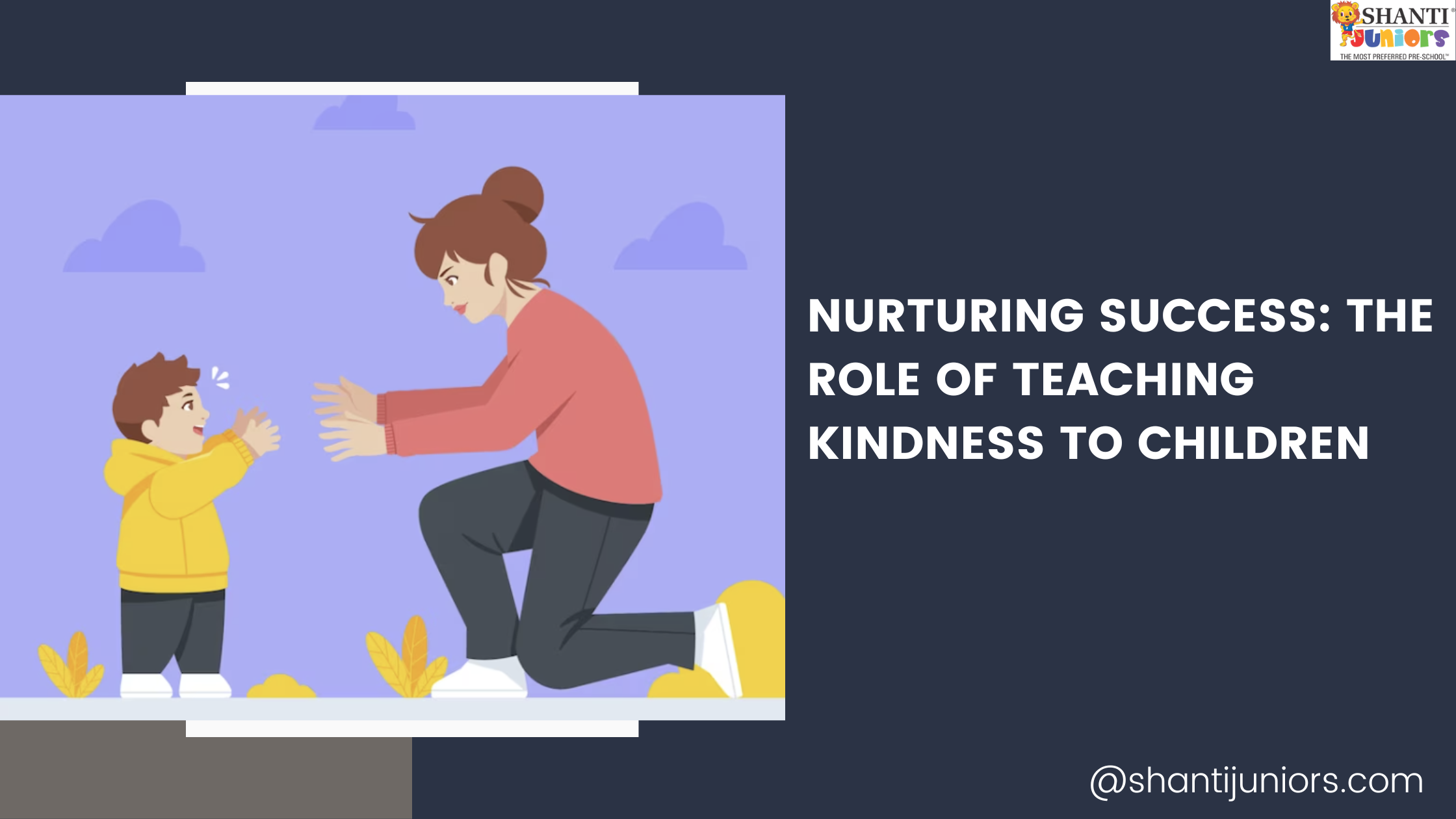

Introduction
Success in life encompasses more than academic achievements and professional accomplishments. It encompasses character, compassion, and kindness. Teaching kindness to children is a foundational aspect of their upbringing that not only shapes their character but also has a profound impact on their overall success and happiness. In this extensive blog post, we will explore the powerful connection between teaching kindness and a child's success in various facets of life.
Empathy: The Foundation of Kindness
Empathy, the ability to understand and share another person's feelings, is the cornerstone of kindness. When children learn to empathize with others, they develop a deeper understanding of the world around them. This understanding allows them to navigate social situations, build strong relationships, and foster a sense of community—all crucial elements for success in both personal and professional life.
Building Positive Relationships
Kindness is a fundamental building block in creating positive and lasting relationships. Teaching children to be kind fosters a sense of trust, respect, and cooperation. These qualities are vital in building a strong network of relationships, whether it's within the family, at school, or in the workplace. Success often hinges on the ability to collaborate and work effectively with others, making kindness an essential attribute for achieving goals and aspirations.
Conflict Resolution and Resilience
Kindness teaches children to approach conflicts with a sense of understanding and a willingness to find common ground. Through acts of kindness, children learn the power of forgiveness, patience, and resilience. These qualities equip them to handle setbacks, challenges, and conflicts in a constructive manner, ultimately contributing to their ability to bounce back and succeed despite adversities.
Enhanced Emotional Intelligence
Understanding and managing emotions is a critical skill that influences a child's academic and social success. Teaching kindness nurtures emotional intelligence, helping children recognize and manage their own emotions and empathize with others. Emotional intelligence is linked to improved academic performance, better leadership skills, and more satisfying interpersonal relationships—all of which are vital for success in adulthood.
Creating a Positive Self-Image
Kindness extends not only to others but also to oneself. When children are taught to be kind to themselves, they develop a positive self-image and self-esteem. This self-compassion encourages a growth mindset, resilience, and a willingness to take risks—essential components of success in academic, personal, and professional pursuits.
Also Read: Keeping Kids Active and Healthy: A Guide for Parents
Contributing to a Better Society
Kindness instills a sense of responsibility towards the community and the broader world. Children learn the importance of giving back, helping those in need, and being a positive influence in society. Success is often defined not only by personal achievements but also by the positive impact one has on the community, making kindness a catalyst for a successful and fulfilling life.
Conclusion
Teaching kindness to children goes beyond the realm of morality; it shapes the trajectory of their lives, setting the stage for success, happiness, and fulfillment. As parents, educators, and mentors, it's crucial to prioritize instilling kindness in children, for it is through this invaluable lesson that we empower the next generation to thrive, make a difference, and succeed in all aspects of life.